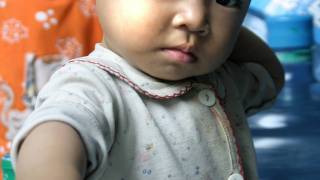Should Each Non-Medical Vaccine-Exemption Cost $4,610?

According to a new report by Children’s Hospital Colorado, more than 9,400 children visited hospitals and emergency departments in 2017 for diseases that could have been prevented by a vaccine.
About 460 children were hospitalized and 8,656 kids were treated in emergency rooms for vaccine-preventable influenza, resulting in $42 million in charges, the report said.
Which averages a cost-per-patient of $4,610.
And, Colorado just reported their 1st measles case of 2019.
Measles is very contagious and even 1 case can lead to an outbreak, especially in places where vaccination rates are low, such as Colorado.
According to previous studies, when a local community is confronted with a measles virus outbreak, the fully-loaded, cost-per-patient is higher.
Previously, 3 other studies reported higher cost-per-patient averages for treating measles than the $4,610 Colorado reported.
- According to a study published in JAMA, the New York City Department of Health and Mental Hygiene (DOHMH) found the measles outbreak in 2013 generated $394,448 indirect costs and consumed 10,054 personnel hours responding to and controlling the outbreak. Which means the average direct cost to DOHMH per measles case was $6,800.
- The Kansas City Star reported, 2 measles outbreaks in Kansas and Missouri cost taxpayer resources $170,000 to treat 35 measles cases. That cost is approximately $4,875 per measles case. But, this cost may not include the full economic impact of measles.
- Another measles case in January 2008 of an unvaccinated 7-year-old boy who was unknowingly infected with measles returned from Switzerland, resulting in a very large outbreak in San Diego, California. This one boy resulted in 839 exposed persons. A vigorous outbreak response halted the outbreak at a net public-sector cost of $10,376 per case.
All states have laws requiring vaccination as a condition for school entry and all allow exemptions on the basis of medical contraindications.
In addition, 47 states permit religious exemptions, and 18 states permit both religious and philosophical exemptions.
Moreover, a study, published in PLOS Medicine, found that in the past 10 years, the number of philosophical exemptions to vaccination has increased in 66 percent of the states that allow such exemptions.
As a result, these researchers suggest that these areas are becoming increasingly vulnerable to vaccine-preventable disease outbreaks, such as measles and mumps.
In a related commentary in JAMA, Jason L. Schwartz, Ph.D., an Assistant Professor in the Department of Health Policy and Management at the Yale School of Public Health, says vaccine hesitancy poses a growing threat to the success of vaccination efforts worldwide.
Dr. Schwartz suggests it may be time to start charging a fee to parents who want to obtain a non-medical, vaccination exemption for their children.
“Those who voluntarily choose to forego vaccination are thus free-riders, benefiting from this public good without contributing to it,” Dr. Schwartz concluded.
“Such a fee would reflect the shared benefits among a community that result from a well-functioning vaccination system and the corresponding shared responsibility for contributing to and sustaining those benefits,” said Dr. Schwartz.
The new Colorado report comes as Washington, New York, New Jersey, Texas, and various countries around the world are dealing with extensive measles outbreaks during 2019.
Because of the airborne transmission and the highly contagious nature of the measles virus, even a single case of measles can lead to a large number of exposures and secondary cases, says the Centers for Disease Control and Prevention (CDC).
Post-exposure prophylaxis with measles-mumps-rubella (MMR) vaccine or immune globulin may prevent a measles infection or limit the severity of infection if people become ill, says the CDC.
However, the window of opportunity to limit an infection is narrow.
The CDC recommends administration of the MMR vaccine within 3 days of exposure and immune globulin within 6 days of exposure.
In the USA, most measles cases are travel-related, says the CDC. The virus is brought into the United States by unvaccinated people who get infected in other countries.
International travelers can easily request a vaccine counseling appointment at Vax-Before-Travel.
The CDC Vaccine Price List provides private sector vaccine prices for general information. And, vaccine discounts can be found here.
Vaccines, like any medicine, can have side effects. You are encouraged to report negative side effects of vaccines to the FDA or CDC.
Our Trust Standards: Medical Advisory Committee


























